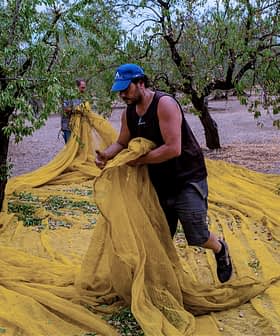The Puglia Region, the Ministry of Agricultural Policies, and the Ministry of Cultural Heritage signed a protocol agreement which allows farmers to replant olive trees in the areas affected by Xylella fastidiosa (Xf) subject to landscape constraints, without prior authorization from the landscape commissions and the Superintendent of Cultural Heritage.
The measure reduces bureaucratic burdens for those who want to restore damaged olive groves. Growers are required, however, to replace uprooted trees with “only resistant olive cultivars, such as Leccino or Fs-17, or other olive varieties that may prove resistant or tolerant” to Xf. The Puglia Region is responsible for monitoring, keeping the ministries informed.
Farmers must request a landscape authorization only if the replanting interventions risk undermining the preservation of territorial and historical assets that characterize the rural landscape of the area such as dry-stone walls, lamie (typical old houses), specchie (megaliths), trulli (traditional huts), cisterns, wells, and so on.
The understanding had been previously described by the agriculture minister, Teresa Bellanova. “We draw up a protocol agreement to simplify and unblock the replanting of olive trees,” she said during a meeting with some olive grower associations in Leverano (Lecce).
However, the measure has not been welcomed by all Apulian olive farmers, some of whom are opposed to mandatory replanting of olive trees and called upon the institutions to leave open the possibility to grow other Mediterranean crops such as fig and almond trees to avoid the re-establishment of monoculture and favor biodiversity.








